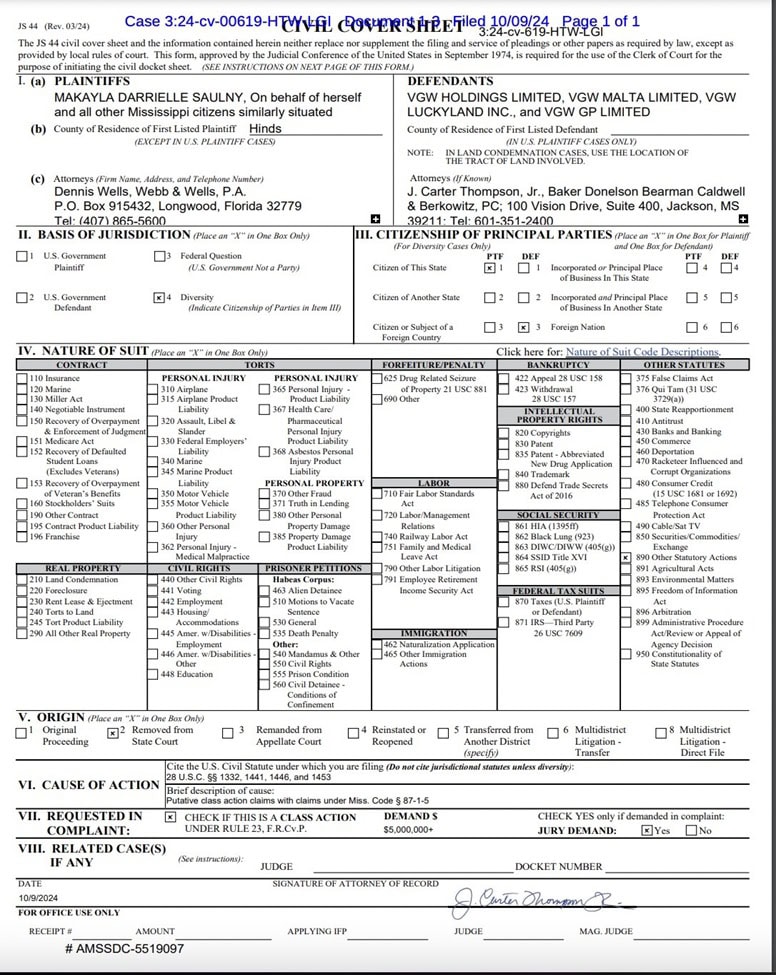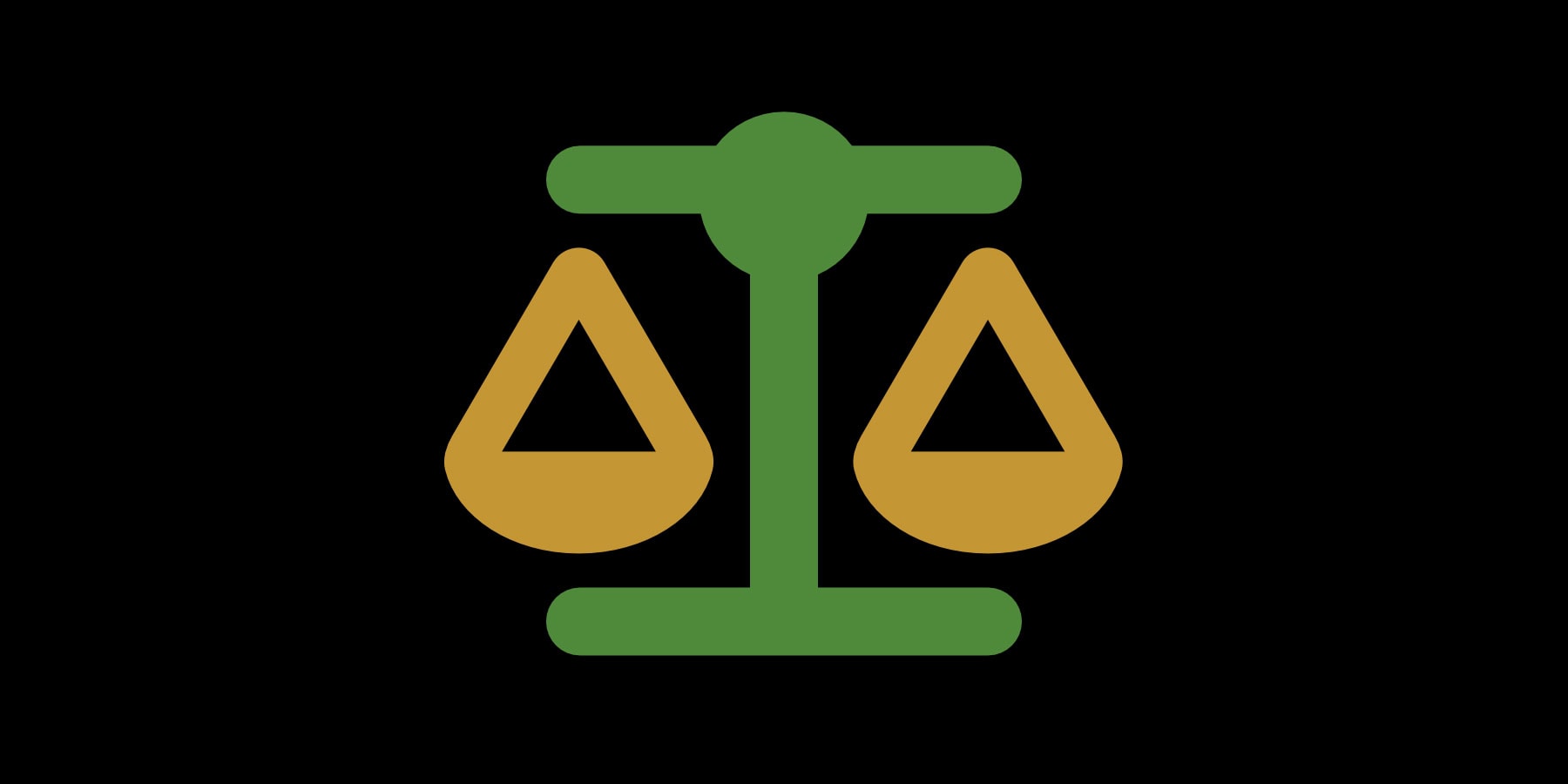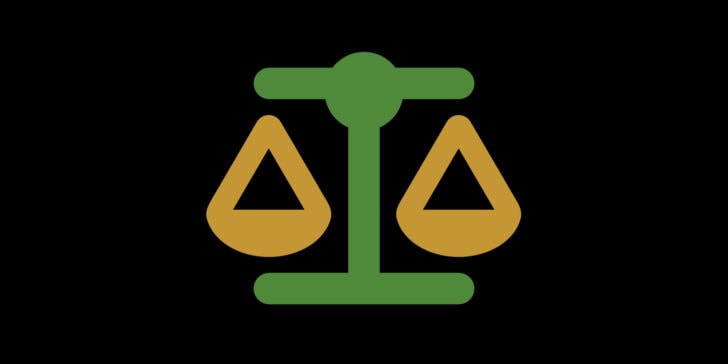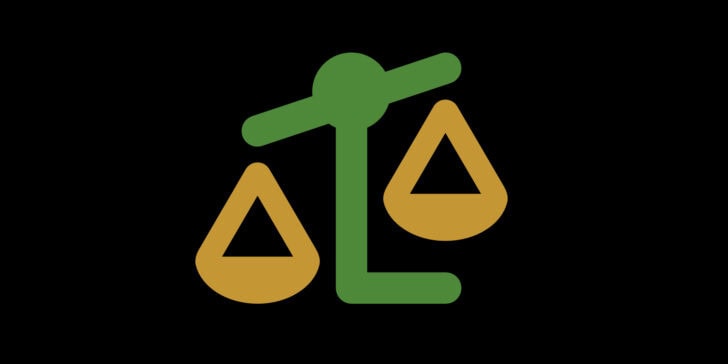Sweepstakes gaming giant VGW, operator of top social casinos like Chumba Casino and LuckyLand Slots, is again in legal trouble – this time with a class action lawsuit in Mississippi.
In the new federal lawsuit filed by plaintiff Makayla Darrielle Saulny on October 9, 2024, the Australian-based entertainment company is accused of carrying out unlicensed gambling activities in The Hospitality State.
The lawsuit seeks over $5 million in damages, aiming to recover money lost by Mississippi players on VGW’s social casinos since August 2021.

Makayla Saulny’s legal team argues that VGW social gaming sites violate local gambling laws in Mississippi by providing unlicensed real-money internet casino gambling disguised as sweepstakes gaming.
In their argument, Saulny’s team alleges that the free method of entry promoted by VGW is illusionary, with players having to spend real money to obtain Sweeps Coins that are used to play games in the provider’s casinos. The plaintiff’s claim to compensation is supported by section 87-1-5 of the Mississippi Code which allows individuals to recover money lost through illegal gambling operations.
This latest lawsuit against VGW was initially brought to the Circuit Court of Hinds County in October 2024. However, in line with VGW’s strategy to gain legal advantage by transferring cases to larger jurisdictions, the case was successfully moved to the US District Court for the Southern District of Mississippi, with the hearing ongoing.
Similar Cases Against VGW
The Mississippi lawsuit is VGW’s 11th federal lawsuit, with similar ongoing cases in Massachusetts, Florida, and Georgia. The company agreed to a $11.75 million settlement package that was paid to Kentuckians in 2023, following a class action lawsuit alleging that players were misled to purchase coins with real money at Chumba Casino.
In February 2024, The Connecticut Department of Consumer Protection sent a cease-and-desist order to VGW, and the company has since withdrawn its social casinos from The Constitution State. Similar cease-and-desist orders have been issued in Delaware and Michigan and while VGW instantly ceased operations in Michigan, it took them nearly two years to exit Delaware.
Most of the lawsuits against VGW center around the legality of the company’s dual-currency model, where players must purchase Gold Coins to receive Sweeps Coins. These Sweeps Coins are then used to play casino-style games on VGW social casinos. Plaintiffs argue that this system is illegal and claims have been filed to recover money spent by state residents to purchase Sweeps Coins on VGW platforms over a period.
VGW’s strategy of moving lawsuits to federal courts suffered a setback in October 2024, as a Tennessee Federal Court sent the company’s case back to the Coffee County Circuit Court. In the court’s ruling, the judge deemed that the lawsuit against VGW did not qualify as a class action and, as such, couldn’t be escalated to federal jurisdiction by the company.
Our Thoughts
While VGW has had some success moving cases to federal courts, the company’s recent setback in the Tennessee lawsuit indicates that state courts are set to exert more control moving forward. If the Mississippi lawsuit is subsequently returned to state court and the plaintiff prevails, VGW sweeps casinos could once more be forced to pay significant compensation and move operations out of the state.



